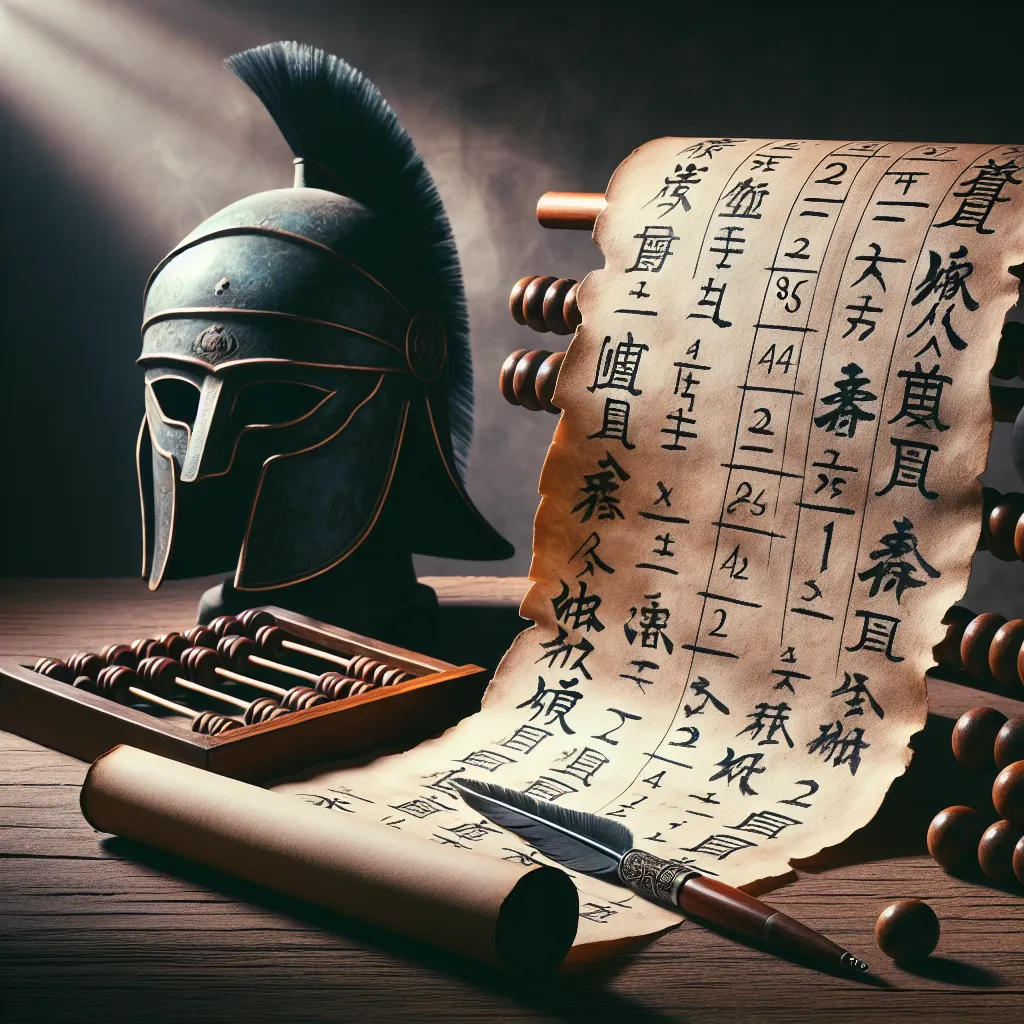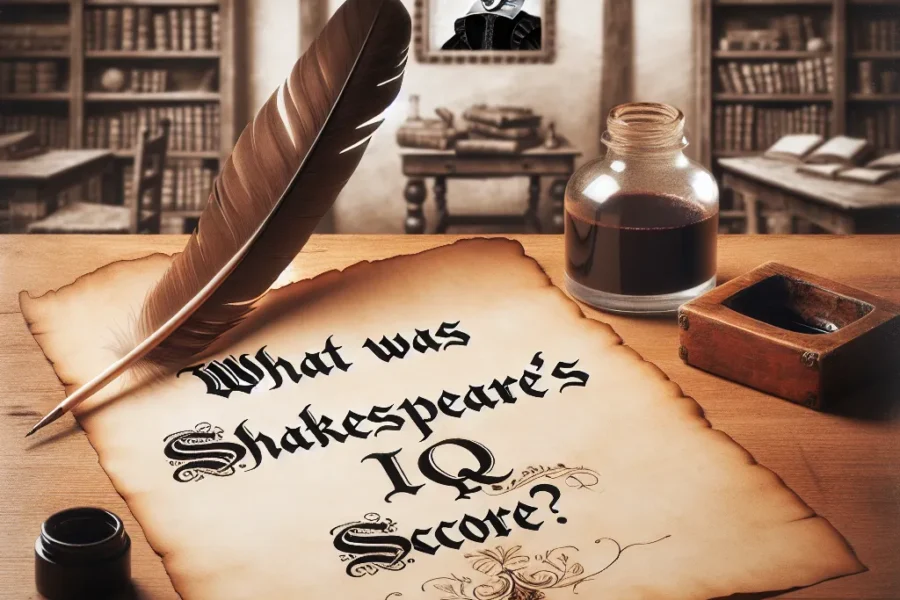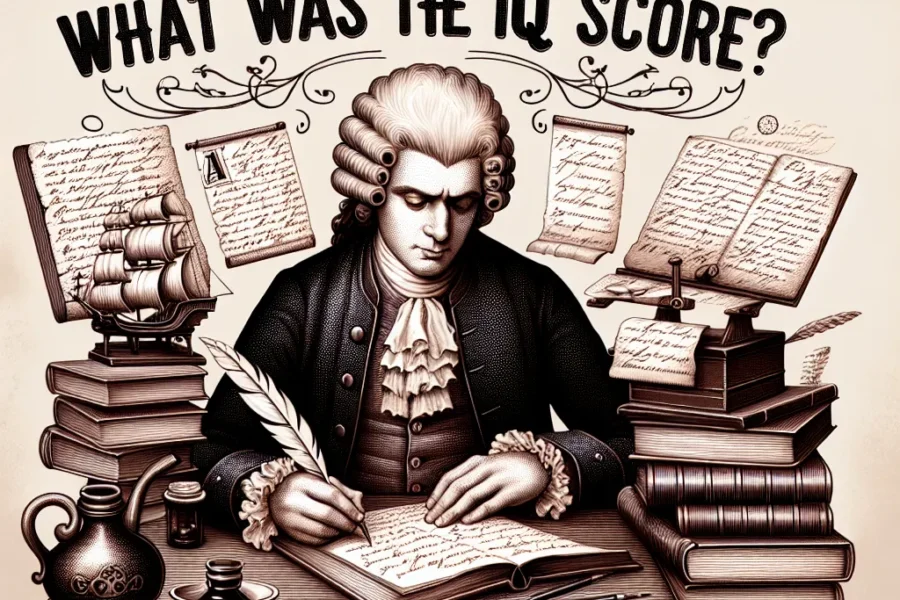Sun Tzu, the ancient Chinese general, military strategist, writer, and philosopher, is best known for his timeless work, “The Art of War.” For centuries, his principles on strategy, tactics, and conflict have been studied and revered, finding application beyond the battlefield in arenas such as business, politics, and sports. Given his enduring influence and perceived genius, many today might wonder: What was Sun Tzu’s IQ score?
If you are looking for legitimate IQ Tests which pass the entry bar for Mensa, see our IQ Tests.
To explore this question, we must first understand the concept of IQ and its application. Intelligence Quotient (IQ) is a score derived from standardized tests designed to measure human intelligence. Modern IQ testing has its roots in the early 20th century with Alfred Binet’s development of the Binet-Simon scale. The scale has since evolved, undergoing numerous revisions to improve its accuracy and applicability.
However, the concept of measuring intelligence via a numerical value was entirely foreign in Sun Tzu’s time. Born around 544 BC and believed to have died in 496 BC, the context in which Sun Tzu lived was vastly different from today. There were no standardized tests, no psychometric evaluations, and essentially no framework akin to the modern concept of IQ. Therefore, assigning an exact IQ score to Sun Tzu is an anachronism and impossible in absolute terms.
Nevertheless, attempting to gauge Sun Tzu’s intelligence requires a qualitative analysis of his life, accomplishments, and enduring impact rather than a quantitative measure. “The Art of War,” Sun Tzu’s magnum opus, provides profound insights into his intellectual prowess. Given that his writings are still highly relevant, it’s reasonable to infer a high level of strategic and analytical intelligence.
Sun Tzu’s strategies focus on understanding oneself and the enemy, the importance of spies, and the role of deception in warfare. His ability to synthesize these concepts into coherent strategies suggests that he was not merely intelligent but possessed a form of wisdom that transcended conventional understanding. His work demonstrates an awareness of human nature, psychology, and the unpredictable elements of conflict—an amalgamation of knowledge areas indicative of high cognitive abilities.
Yet, it’s crucial to differentiate types of intelligence. Psychologists often discuss multiple intelligences, including logical-mathematical, linguistic, spatial, bodily-kinesthetic, musical, interpersonal, intrapersonal, and naturalistic intelligences. Sun Tzu’s expertise would likely rank him high in logical-mathematical and interpersonal intelligences, given his strategic capabilities and understanding of human behavior.
To delve deeper, Sun Tzu’s achievements can be measured by modern standards of intelligence in several ways:
1. **Strategy and Critical Thinking**: Creating effective military strategies requires a high level of critical thinking and foresight. Sun Tzu’s ability to devise complex strategies that remain applicable even today suggests exceptional logical and analytical skills.
2. **Psychological Insight**: Sun Tzu’s teachings demonstrate an in-depth understanding of human psychology, both in terms of morale and behavior. He emphasizes the need to understand both one’s own troops and the enemy’s disposition to succeed in battle.
3. **Communication Skills**: The articulation of his strategies in “The Art of War” is done with clarity and precision. His ability to convey complex ideas succinctly points to strong linguistic intelligence.
4. **Adaptability and Innovation**: Sun Tzu advocated for flexibility and adaptability in warfare, traits that require innovative thinking and the ability to anticipate and respond to rapidly changing scenarios.
Beyond “The Art of War,” historical accounts and the enduring legacy of Sun Tzu indicate that he was highly regarded by contemporaries and successive generations. His treatise has been studied by military leaders and strategists worldwide, pointing to an influence that few can rival.
If we consider the modern metrics of an IQ test, which typically include elements such as logical reasoning, problem-solving, math skills, and understanding of analogies, it’s reasonable to postulate that Sun Tzu would likely score very highly. His multidimensional approach to warfare, incorporating elements of psychology, sociology, and geopolitics, showcases a kind of brilliance that formal education systems strive to inculcate through advanced study and analysis.
Moreover, Sun Tzu’s legacy endures not just because of his strategic prowess but also due to his philosophical insights. His assertion that “all warfare is based on deception” encapsulates a profound understanding of the underlying truths of human conflict. It’s not merely about outmaneuvering the opponent on the battlefield but comprehending and manipulating the myriad factors that contribute to the outcome of confrontations.
To equate Sun Tzu’s intellect with a modern IQ score, one might consider the genius benchmark—typically an IQ of 140 and above. Given his comprehensive understanding of strategy, humans, and conflict, and the timelessness of his advice, it’s not implausible to suggest he could fit within this range. Some might even argue he could rank among the most intelligent individuals ever known, given the global and timeless nature of his impact.
Nonetheless, while this speculative exercise can be intellectually stimulating, it fundamentally simplifies the multifaceted nature of intelligence. “The Art of War” itself is a testament to a different kind of intelligence that blends wisdom, experience, and philosophical depth. Sun Tzu’s contributions can’t be fully encapsulated by any numerical score, modern tests, or classifications. His genius is part of a rich historical and cultural tapestry that transcends the narrow confines of quantifiable metrics.
In conclusion, attempting to deduce Sun Tzu’s IQ score is anachronistic and speculative, as intelligence can manifest in many forms. However, if forced to draw parallels with modern metrics, it’s clear his intellectual legacy denotes a high level of strategic, analytical, and philosophical insight, akin to what would be considered a genius-level intellect today. Sun Tzu’s work remains a cornerstone of strategic thinking, reflecting a depth of understanding and foresight that numbers alone cannot do justice. Therefore, while we may never know Sun Tzu’s IQ score, we can acknowledge his unparalleled impact and the brilliance that has kept his teachings alive for over two millennia.



Leave a Comment